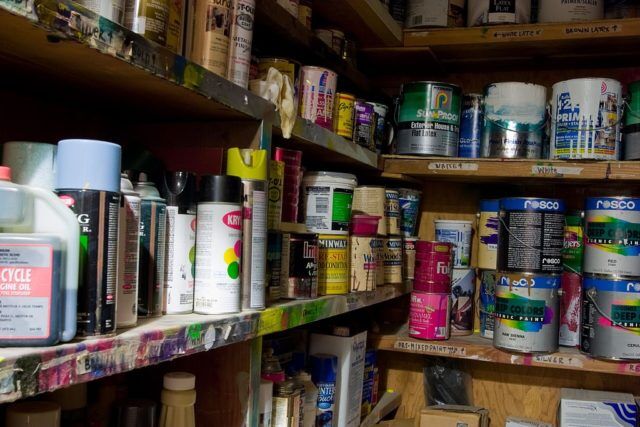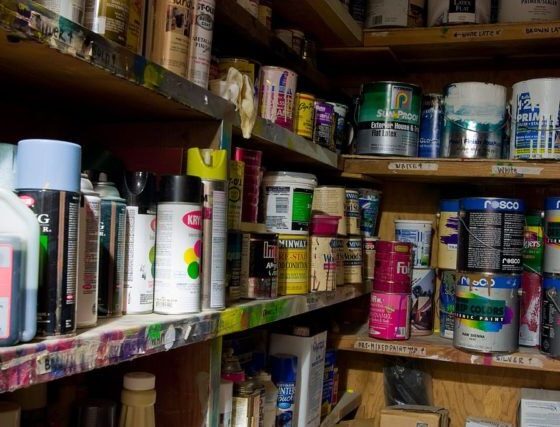

Environment
Environmentally Friendly Paints and How the Market is Changing
The paint industry is turning its cogs to produce more environmentally friendly products – so what should consumers look out for and what are the benefits of ‘water-based paints’?
From 1st January 2007, new VOC regulations were introduced in the United Kingdom where manufacturers had to be compliant in their labelling and formulation of Volatile Organic Compound products. Phase II of the new regulations rolled out 1st January 2010, and after that time any non-compliant product could be removed from the market.
VOCs can be found in a wide range of items and sources, from paints to cleaning products, and from furniture polish to vehicle exhausts. They are used, amongst other purposes, to control the drying time of a product and how specific chemicals evaporate. VOCs leave a heavy carbon footprint when emitted from road and aircraft vehicles – accelerating how nitrogen oxide reacts with sunlight to create photochemical smogs, directly impacting the ozone.
Previously market dominant alkyd and oil-based paints have started to be replaced by water-based products. Water-based paints do have a lot of added benefits to the user, as well as to the environment – such as faster drying times, less odour and easier cleaning of application equipment and tools.
Many people are aware of water-based paints hitting more DIY store shelves for basic wall and ceiling paints, but Rawlins Paints, who are one of the UK’s leading industrial paint specialist companies, are distributing heavier duty products that have moved from being oil-based to water-based.
Whilst 50 years ago the market primarily comprised of all-solvent-based paints, today water-based paints now account for 80% of sales in the UK’s residential market. The transition will continue to be ongoing for the industrial sector, where some substrates and processes continue to require specialist epoxy paints. Epoxy paints offer greater levels of chemical resistance for commercial and industrial manufacturing plants.
Water-based gloss paints may once have been the Holy Grail for DIY and home-owner projects, with less odour, and a lower impact on ecosystems, but many users still find solvent-based gloss paints easier to apply in one-coating. As with the transference of use from solvent-based to water-based products, much of the ‘sticking point’ for users is the application method to get the same results as before. Application tools have been designed and upgraded for water-based paints, as well as aerosols and spray equipment. Health and safety measures, along with personal protection must always be adhered to however, regardless of the product.
Advancements in paint technology have seen dramatic and environmentally friendly surges in agricultural water-based paint use and stricter VOC regulations being implemented across the globe. Higher quality water-based paints are being produced for use on flooring, masonry and cladding, as well as for roofs, barns and exterior metal surfaces.
2017 will see manufacturers launching more products into the ever-growing commercial and industrial market that are better for the environment, including product packaging. There will be an increase in water-based epoxy paint for heavier duty needs, as the solvents are essentially replaced with water. Along with this it is expected that sales of thinners and specialist paint preparation and cleaning products will continue to decline, as water-based products can be cleaned and maintained with cold-water.
For specialist needs and at facilities that do require paint coatings to be applied at lower temperatures, or to have faster curing times and added chemical resistance, solvent-based paints are still being manufactured.
Blue and Green Tomorrow will continue to report on the growing trends of environmentally sound decorating, restoration and industrial products through 2017.


 Environment12 months ago
Environment12 months agoAre Polymer Banknotes: an Eco-Friendly Trend or a Groundswell?

 Features11 months ago
Features11 months agoEco-Friendly Cryptocurrencies: Sustainable Investment Choices

 Features12 months ago
Features12 months agoEco-Friendly Crypto Traders Must Find the Right Exchange

 Energy11 months ago
Energy11 months agoThe Growing Role of Solar Panels in Ireland’s Energy Future






















